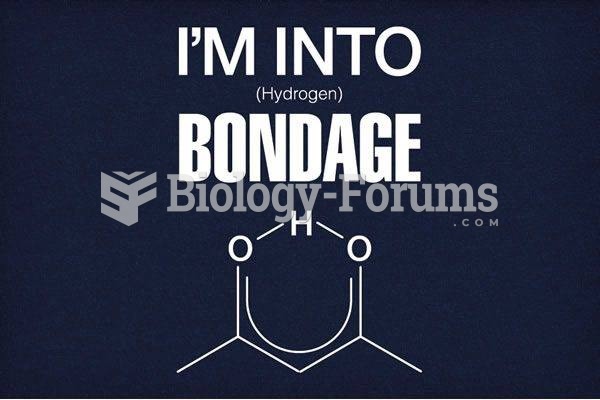This topic contains a solution. Click here to go to the answer
|
|
|
Did you know?
Recent studies have shown that the number of medication errors increases in relation to the number of orders that are verified per pharmacist, per work shift.
Did you know?
For high blood pressure (hypertension), a new class of drug, called a vasopeptidase blocker (inhibitor), has been developed. It decreases blood pressure by simultaneously dilating the peripheral arteries and increasing the body's loss of salt.
Did you know?
People about to have surgery must tell their health care providers about all supplements they take.
Did you know?
There are approximately 3 million unintended pregnancies in the United States each year.
Did you know?
About 100 new prescription or over-the-counter drugs come into the U.S. market every year.







